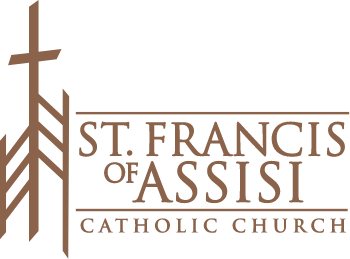The steward in Luke 16:1 (from last week’s Gospel) does not have much going for him. He’s bad at his job—too lazy to work for a living, too undisciplined to manage his master’s goods, and too proud to beg for money. He’s a deceitful cheat who goes behind his master’s back to adjust the accounts in favor of the master’s debtors. Not exactly the kind of hero we might expect in one of Jesus’ parables. Yet, amidst his glaring faults, he does one thing right: He puts money at the service of relationship, using things for the sake of people.
The ancient Israelites, whom the prophet Amos condemned (Amos 8:4-7), did not do this. Their obsession with wealth left them rushing through the Sabbath—an inconvenient day that God had set aside for rest and recreation—simply to get back to work. Perhaps this strikes a little uncomfortably close to home for us today.
Jesus highlights this distortion of a good desire when he says,
“The children of this world are more prudent in dealing with their own generation than are the children of light” (Luke 16:8).
Human nature, fallen and bent toward accumulation, often seeks more and more wealth. Jesus calls the children of God to channel that same energy toward using resources for the sake of relationships and the growth of the human person—investing in education, virtue, and development.
The “dishonest wealth” Jesus speaks of is literally unrighteous wealth in Greek. Money, in and of itself, has no moral value—it is morally neutral. And yet, Jesus tells us to use that wealth to make friends, so that we may be welcomed into eternal dwellings (Luke 16:9).
So who are we meant to befriend with our resources? Scripture, Jesus, and the prophets all answer: those in need. Invite someone for a cup of coffee, host a lonely neighbor for a meal, or reach out to those sleeping on the streets. See past their tattered clothes and tired faces; behold their dignity. St. John Chrysostom reminds us,
“If you ever tire of praying because you’re not getting anything in return, consider how often you’ve heard the poor man calling and have not listened to him.”
One story brings this to life. A man, initially reluctant and perhaps a bit repulsed, took a homeless man out for lunch. The devil makes doing nothing feel important when an pportunity for charity arises, yet a sense of responsibility—and maybe a touch of guilt—pushed him forward. They went out, stood in line, and began to order. When the first man reached for his wallet, the homeless man quietly pulled out a $20 bill, saying, “Please, I need to be a blessing for someone today.”
By the time the first man finished eating, the homeless man had taken only a few bites. He was more focused on the conversation, the connection, the relationship. The food and money mattered far less than the bond they were building.
He was more starved for friendship than for food.
St. Teresa of Calcutta once said,
“Being unwanted, unloved, uncared for, forgotten by everybody—that I think is a much greater form of poverty than the one who has nothing to eat.”
… “I need to be a blessing for someone today.” …
As Pope Francis reminded us, the poor show us the way to heaven. Let us take this to heart and make friends with them, offering our time, our presence, and our love.
Father Grant Huslig, Parochial Vicar

